Duck farming is a viable business for marginal farmers, which is a good source of income for them. In addition, duck farming is very easy to commercialize and manage. Let’s check out more information on how to start Fuck farming from scratch below.
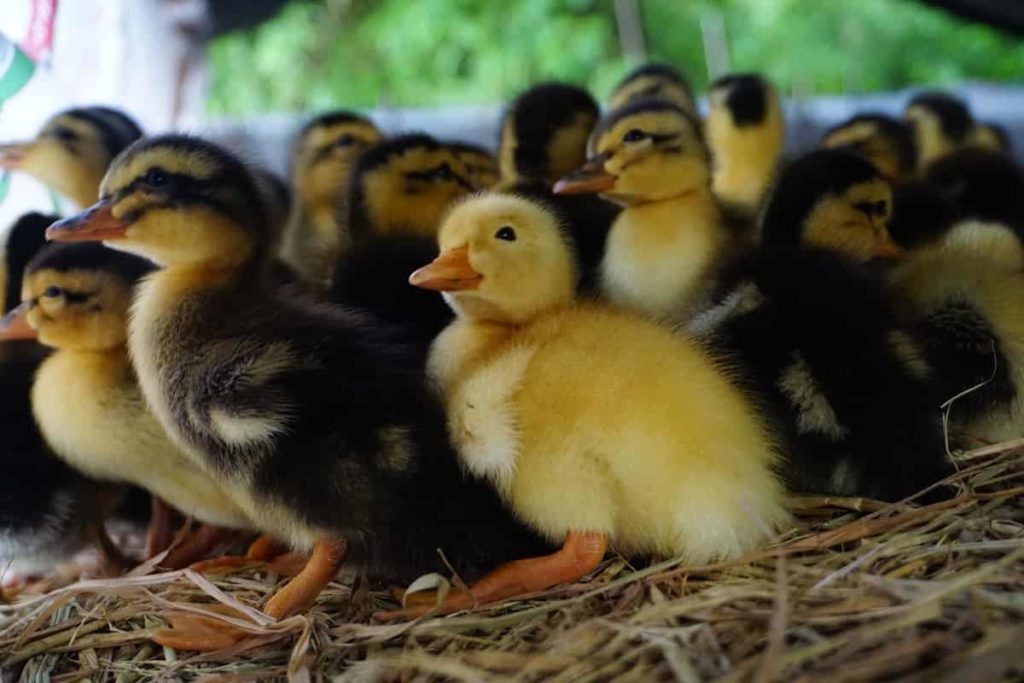
How to start duck farming from scratch
Is duck farming a profitable business?
- Yes, a commercial duck farming company can be profitable.
- Duck meat and eggs have high demand, and many successful farmers earn a lot from duck farming.
- Ducks are very hardy birds and require little care or management. They can adapt themselves to almost all types of environmental conditions.
Which ducks are best for farming?
- Campbell – Commonly known as the Khaki Campbell because of its tan color, the Campbell is undoubtedly one of the best duck breeds for egg production — these ducks can lay up to 340 eggs per year.
- Pekin Duck – The large, white Pekin duck is the most popular domestic duck species. Beautiful all-white feathers on a heavy, oversized bird. Pekins are popular because they are dual purposes. Hens lay large numbers of white eggs, so keeping them as layers is great. Their fast growth rate and light-colored skin are ideal for raising meat birds.
- Muscovy – A really interesting bird from the Southern Hemisphere. Commonly known as ducks, Muscovies are a different species from their Mallard duck relatives. They build nests like ducks but also prefer to roost at night like chickens.
- Cayuga – The only duck breed to develop in the United States, Cayugas originated near Cayuga Lake in New York. These are medium-heavy breeds that are slow growing. Cayugas have beautiful black-pigmented feathers that look green in certain lighting, black bills, and black feet.
- Rouen – A wonderful multi-purpose duck. A large bird that lays 3-5 blue eggs per week.
- Madagascar pochard – The world’s rarest bird – a type of duck called the Madagascar pochard – has been given a new home for the New Year. An international team of researchers released 21 birds into a lake north of Madagascar.
- Mallards – Mallards lay beautiful green eggs and are very energetic and talkative. They have the lowest egg-laying rate of any breed, laying only a couple of eggs per week.
Assessment of dietary requirements and health is critical to the success of proper duck management.
In case you missed it: Integrated Fish Duck Farming, Duck Dropping as Manure
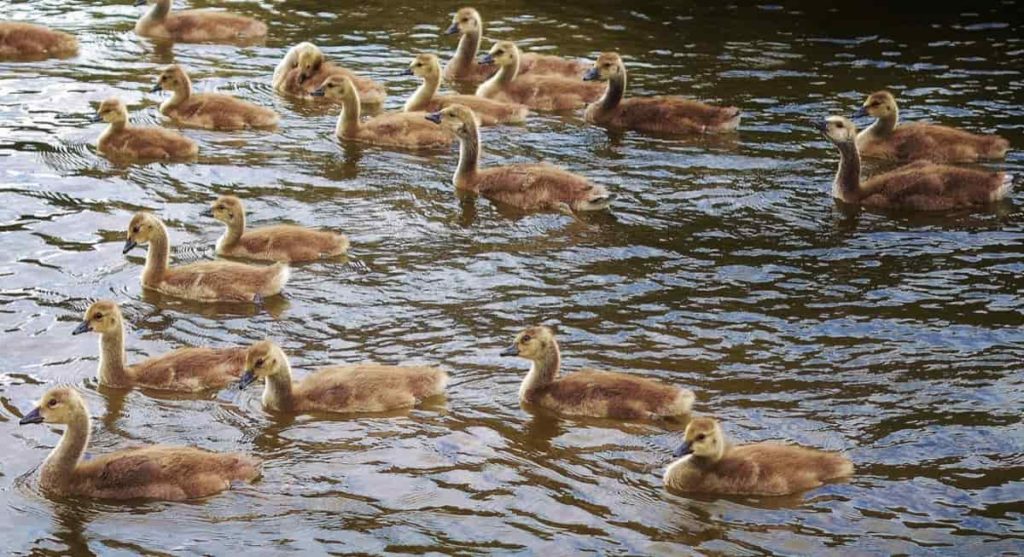
What are the factors to consider in raising ducks?
- Housing type
- Duck breed Management
- Space requirement
- Mortality rate
- Produce demand
- Product Marketing
- Feed Availability
- Pests, Predator Control
How do you manage a duck farm?
Housing – Ducks do not require elaborate houses. The house should be well ventilated, dry, and rodent free. The roof can be shed type, gable, or semi-circular. It can have solid or wire floors. Wire floors are not popular with breeders. Under a semi-deep system, the house should be easy to run outside as ducks prefer to be outside during the day and even during winter or rains.
Water – Although the duck is a waterfowl and is very fond of water, water is not necessary for swimming at any stage of duck farming. In addition, they also like to clean their bills from time to time and wash them to clean the feed. While the meat strain showed a slight increase in duck body weight at seven weeks of age (weight gain for swimming ducks was 0.3% over non-swimming ducks), swimming for the egg-laying strains is a disadvantage.
Why is duck meat more expensive?
Duck meat is more expensive (per pound) because the input costs required to raise ducks are higher (per duck) than for conventionally raised poultry like chickens. For the duck meat business to be profitable, these costs must be passed on to the consumer, resulting in a higher price per pound of duck meat.
What are the benefits of duck farming?
Low Maintenance: Ducks are simple birds. They do not require much physical attention and financial support when kept and maintained. Ducks will eat practically anything; insects, worms, snails, and grains are all sources of nutrition. Plus, you won’t need to build additional houses or stables for them to live in. Any small space made of raw materials is sufficient for shelter for them and will suffice for a few ducks. Low financial investment in farm animals is a big advantage, especially in low-budget farming.
No Special Care Needed: As mentioned earlier, ducks are very easy to care for. They usually lay eggs early morning or night and rarely during the day. Also, they don’t get sick often and are pretty hardy birds. Also, there is no specific business plan for duck farming to raise them. Overall, ducks are easy to keep as pets and have a fantastic return on investment.
Controlling insects and bugs: Ducks play an important role in keeping the number of insects and pests on your farm fairly low. They eat almost anything such as bugs, insects, worms, snails, and even grains that you provide. Ducks act as pesticides and insecticides without affecting crops and reducing their nutritional value. Duck farming is one of agriculture’s most sustainable methods of pest control.
Steady source of employment: When you have a lot of ducks on your farm, you may need a caretaker. It even creates a source of employment for unemployed or less educated people, which will help you too.
Some other advantages of keeping ducks over chickens are;
- Ducks do not require as much housing as chickens and require less attention than chickens.
- Ducks lay about 40-50 more eggs than chickens.
- Duck farming is economical as compared to chicken due to their foraging habit.
- Ducks have a good life as they survive economically even in the second year, reducing replacement costs.
- The cannibalism and agnostic behavior that is so common in chickens is not commonly encountered with ducks.
- Accurate egg laying data can be recorded for breeding purposes without wasting time and effort. Being relatively heavier, duck eggs provide more nutrition compared to chicken eggs.
In case you missed it: Duck Farming Project Report, Rearing Economics
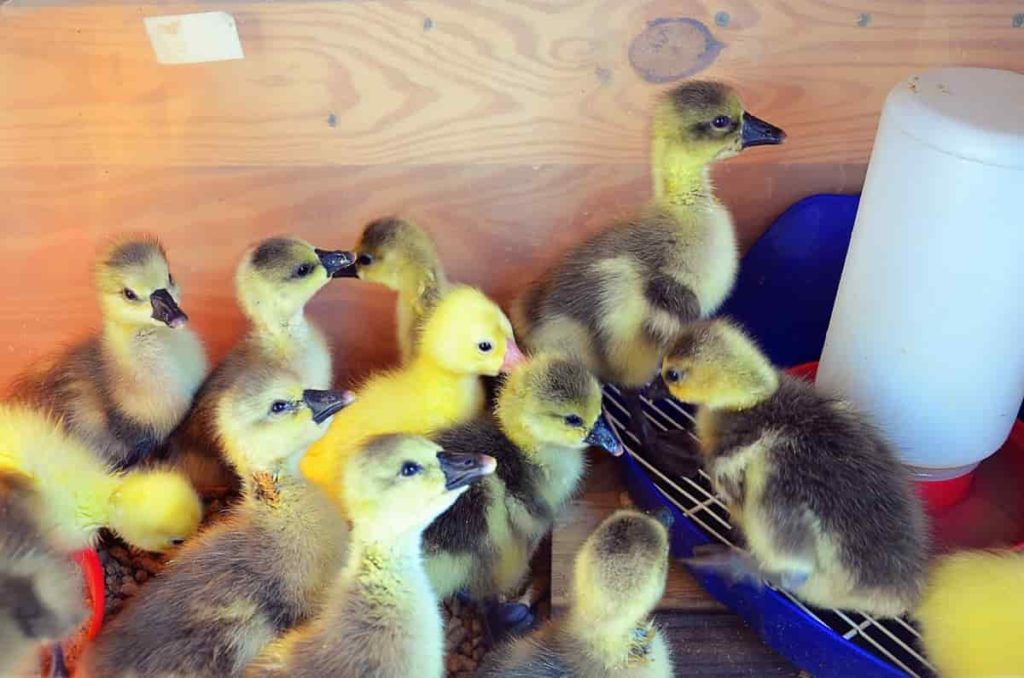
What housing is best for ducks?
There are things to consider in duck farming equipment and layout. Others are shed or housing types. Two common types of housing are
- Intensive or
- Semi-intensive housing
To prepare the shed, you must select the right site, design the layout, and build the nest. You are providing more water and getting special feeder equipment.
Are ducks more profitable than chickens?
Ducks are productive for a longer period than chickens. Some of the top egg-laying breeds of ducks lay for years, outperforming chickens.
How do you make a good house for ducks?
Elaborate sheds are unnecessary, but you should follow the general principles of poultry house design. Breeders can be housed either intensively or semi-intensively:
- Intensive housing – birds are kept indoors for some time.
- Semi-intense housing – birds have access to outdoor runs during the day but are confined indoors at night and during adverse weather conditions.
For all types of housing:
- Housing should be clean, dry, properly ventilated, and rainproof.
- Allow each breeder at least 0.2 m2 of floor space within the shed (i.e., five birds/m2).
- For bird comfort, cover the shed floor with litter to absorb moisture and prevent egg breakage – wood shavings are probably most suitable, but any soft absorbent material to a depth of about 7-8cm is satisfactory.
How much do full-grown ducks sell for?
- Ducks are cheap; they can be bought for between $10 and $20.
- Local pet stores usually offer ducks at a very affordable price, so if you’re considering buying a duck from a nearby local store, you can expect to get it for $5 to $10. The increasing demand for duck eggs has surprised many farmers.
Is duck healthier than chicken?
Duck meat is richer in vitamins than chicken meat. Duck provides about three times as much vitamin B1 and twice as much vitamin K. Other vitamins found in high amounts in duck meat include vitamin B2, vitamin E, vitamin A, and folate. Duck also contains vitamin D, which chicken does not.
How many ducks are required to have per acre?
Generally, 8-15 ducks or about 4-6 geese per acre of water is not recommended to maintain a healthy pond ecosystem.
How much does a farm duck cost?
Individual ducklings can cost anywhere from $6 at your local farm and fleet store to $25 to $30 per duck at hatcheries. You’ll also find that farm stores won’t sell a single duck. When farming, you should consider the size of the farm, which is determined by the number of birds. Large commercial operations may have 50,000 to 100,000 ducks per batch, while smaller farms may have as few as 6,000 ducks per batch.
Is it profitable to sell duck eggs?
- The price range of duck eggs is wide.
- Depending on where they are sold, they can sell anywhere between $2.00-$12.00 per dozen.
How many times a day do you feed the ducks?
- Ducks should be fed once in the morning and again in the evening.
- It is important to provide a balanced diet containing adequate nutrients, vitamins, minerals, and protein.
- Ducks can be raised on dry mash, a combination of dry and wet mash or pellets. Ducks prefer wet mash due to difficulties in swallowing dry mash. Pellet feeding, though slightly expensive, has various advantages such as saving in feed quantity, minimum wastage, labor saving, convenience, and improved hygienic conditions.
- Ducks are good foragers. Commercial feed is a fully calculated mixture of grains, chemicals, minerals, and vitamins.
What are the best systems to raise ducks?
Free range system: Under this rearing method, the ducklings are provided with ample space for shelter. A total of 2000 ducks can be reared per acre of land. Ducks mostly get their food by foraging fish, insects, etc.
Semi-intensive system: Under the semi-intensive system, birds are raised on deep litter in a high shelter with a floor space of 0.186 square meters and 0.929 square meters before reaching 16 weeks. Leave 10 cm of feeding space on the hopper. Local feeds are also used under semi-intensive systems. One-third of the food ration can be supplemented by a diet of cheap domestic scraps and forage vegetables available under local conditions.
In case you missed it: Duck Farming Business Plan For Beginners
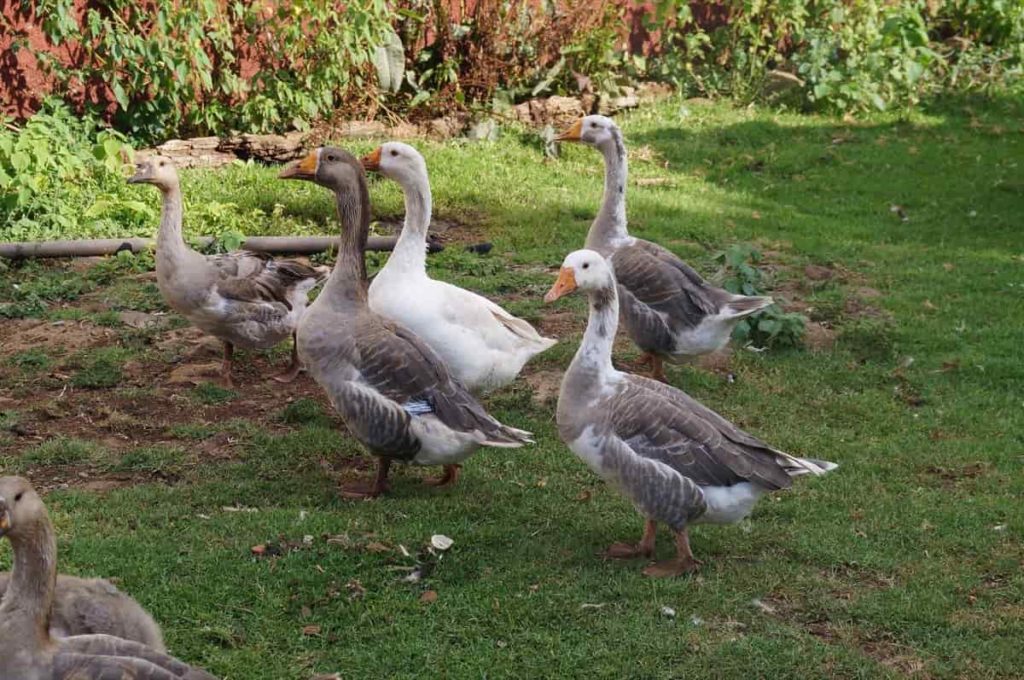
Intensive system: Ducks are fed on concentrated litter in an intensive system until they reach 16 weeks of age. A 0.279 square meter restricted area is allowed per bird. As the ducklings are 17 weeks old, approximately 0.465 square meters per duck is inoculated against the duckboard, providing more space.
Ducklings grow very quickly and therefore require a ration rich in all nutrients. By 20 weeks of age, Khaki Campbell ducks consume about 12.5 kg of feed. The feed then ranges from 120-170g per bird per day, depending on the rate of green production and availability. The ratio between starters, growers, and layers should be 21, 18, and 18, respectively, with metabolizable energy of 2850 and 2900 kcal per kg of feed.
Why it’s important to clean your duck pond?
Maintaining a balanced ecosystem helps maintain the health of your ducks. Excess waste from the ducks causes the water to lack oxygen, making it difficult for all your animals to maintain balance.
Maintaining your duck pond – Keeping your duck pond clean, well-stocked with native plants and animals, and incorporating a filtration system will ensure your pond is safe for ducks and doesn’t smell bad in your backyard. The variety of ways to clean a duck pond is fantastic for those with busy schedules who cannot always prioritize a duck pond over other household or farm chores.
Natural ponds require minimal maintenance, while you can build artificial ponds with additional cleaning features. Selecting the perfect pond ecosystem for your backyard is a multi-faceted undertaking, but keeping it clean can be a simple and effective process once you get into your pond.
At what age do ducks start laying eggs?
Ducks usually start laying at about 6-7 months of age and within five weeks of the start at a rate of about 90% (i.e., 100 ducks laying 90 eggs per day). English breeds usually retain more than 50% yield for about five months.
How many eggs do ducks lay in a year?
- Duck eggs are more popular, but there are many reasons to keep ducks in small flocks for egg production.
- Ducks generally lay more eggs than chickens.
- Commercial hens lay about 250 eggs yearly, while commercial ducks lay 300-350 eggs yearly.
Is it difficult to raise ducks?
The reality is that raising ducks can be more complex than raising chickens, and it’s not just for the backyard flock raiser. Ducks grow quickly, and you can easily find yourself in a situation you may not be fully prepared for or don’t enjoy. For proper ventilation, 40% of the walls need to be fenced with bamboo sticks or wire mesh to allow air to circulate freely in the house. Ensure that the floor of the house is not wet and the rat cannot enter the house. Ducks need a pure floor for 7-8 weeks, and larger ducks need a concrete floor (ceiling floor).
How do you take care of a duck farm?
- Provide plenty of water
- Be prepared for the mess
- Get the right feed
- Consider fencing carefully
- Get the right species
- Know your goals
How much space do ducks need?
You should allow 4 square feet of floor space per duck. Since ducks usually sleep on bedding piles on the floor, they need plenty of room to be comfortable.
Do ducks need shelter at night?
Ducks need shelter at night (and for winter) and shade in summer. If you already have a chicken coop, you can confidently keep your ducks in the same coop at night, provided you have enough space. But be aware – ducks don’t bed themselves like chickens.
Are ducks expensive to keep?
- From initial purchase through lifetime care, owning a duck costs up to $50 per year.
- However, ducks are social animals that must be herded, so you can’t just keep one duck. The basic costs of owning a duck include one-time start-up costs and monthly and yearly recurring costs.
In case you missed it: How to Start Country Chicken Farming from Scratch in Andhra Pradesh: A Step-By-Step Guide for Beginners
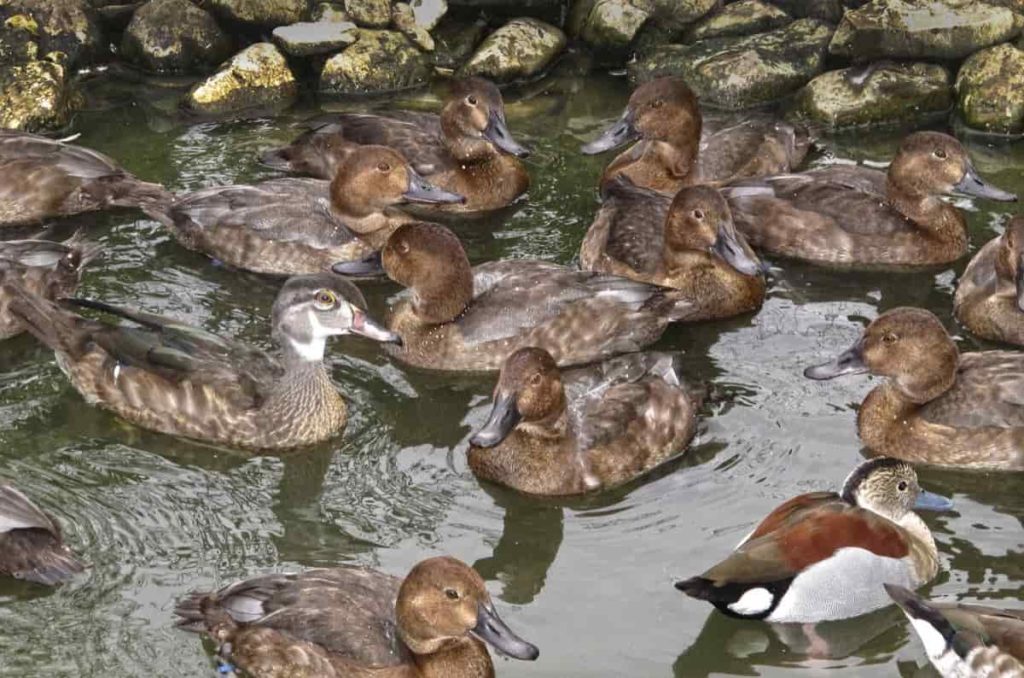
How long does it take to raise duck for meat?
- Both standard and jumbo breeds can be killed as early as six weeks. However, slaughter at 12 weeks gives a higher yield in meat.
- A standard pecan duck will weigh about seven pounds.
How do I keep the duck pond clean naturally?
- Adding critters like tadpoles, freshwater mussels and clams, or snails helps keep the pond clean because these animals like to eat duck waste.
- They help prevent algae and ammonia growth in the water.
Do ducks need fresh water daily?
- Cleaning their bodies – They don’t take a dust bath to eliminate parasites as chickens do.
- Drinking – All animals and plants need water to drink. Going without water for even a short time will affect their laying for a week.
How much quantity of water does the average duck drink per day?
- Ducks prefer clean water to dirty water and place a high value on water in which they can dip their heads. It can change depending on the breed and age of your ducks (as well as the time of year), but on average, each adult duck in your flock will use about 0.25 gallons (1 liter) of water daily.
- Many people use a kiddie pool to give their ducks plenty of water. A tub will also work well.
- Keep an eye on young ducklings when you first start giving them access to swimming water.
- It is essential for duck farming to have water sources around so that the ducks can easily breed, have babies, and move aroundDucks can be profitable both in terms of eggs and meat.
What time of the day is best to feed the ducks?
- Ducks should be fed once in the morning and again in the evening. It is important to provide a balanced diet containing adequate nutrients, vitamins, minerals, and protein.
- Ducks will eat stale bread, doughnuts, chips, crackers, and popcorn, but these items are very low in nutrition and can be bad for them. If you want to feed the ducks, give them something healthy; bird seed, cracked corn, peas, vegetable scraps (cut into small pieces), or mealworms.
How long does it take for ducklings to grow?
Ducks are fully grown in about 30 days. They need a long-term commitment from their owner, as they can live for 10 years or more.
What do you feed the ducks?
- Duck eggs are an excellent source of nutrition. Their deep yellow yolk indicates they contain more antioxidants and 50% more vitamin A than chicken eggs.
- Duck eggs usually have more protein than the chicken eggs, even considering the size. Therefore, give ducks specially formulated duck pellets and crushed grains, as they contain all the essential nutrients for optimal growth and development.
- Ducks like to forage on corn and green vegetables, such as Chickweed, Cabbage, Lettuce, and grasses. Therefore, feeding these food items in the afternoon is advisable, as the ducks will finish eating these items and consume less feed or pellets.
- The list of different foods that you can use as duck feed Sweet corn, Lettuce, Frozen Peas, Seeds, and Rice.
Which is more profitable, duck or chicken?
- A duck can produce 300 eggs in a year. Also, the profit from duck meat is more than from chicken meat.
- If you look at it this way, duck farming is a very profitable business.
- Ducks are also more resistant to diseases than chickens. But they need special care in the summer season.
How do you prevent duck disease?
- Ducks are highly resistant to common avian diseases. Therefore, you can feed your ducks a variety of foods.
- The regular diet of ducks consists of cassava, copra, maize, rice, fruits, and other low-cost and easily available feed. They also have a natural tendency to feed on aquatic plants, algae, green fruits, fungi, earthworms, maggots, snails, insects, etc., which directly reduce the cost of food.
- You can also use your ducks to control your garden’s apple snails or other harmful insects.
- Ducks have a lower mortality rate and generally live longer than chickens. In terms of egg production, ducks lay eggs for a long time.
- Duck products are in high demand in the local and international markets. As a result, many successful farmers are already profiting from their duck farming business.
- Ducklings are bonding creatures; if handled regularly, they will become attached to their caregiver. Your ducks can be special pets, following you around and peeking eagerly when they see you. This adorable behavior often requires little effort: regular feeding and spending time with your little ducklings. Instead, handle them minimally, limiting the time you lift them in and out of the brooder. Bonding can be easily established by spending a lot of time with them, seeing them, and caring for them with limited physical contact.
In case you missed it: 19 Key Rules for Effective Goat Farm Management: From Planning to Reducing Production Cost
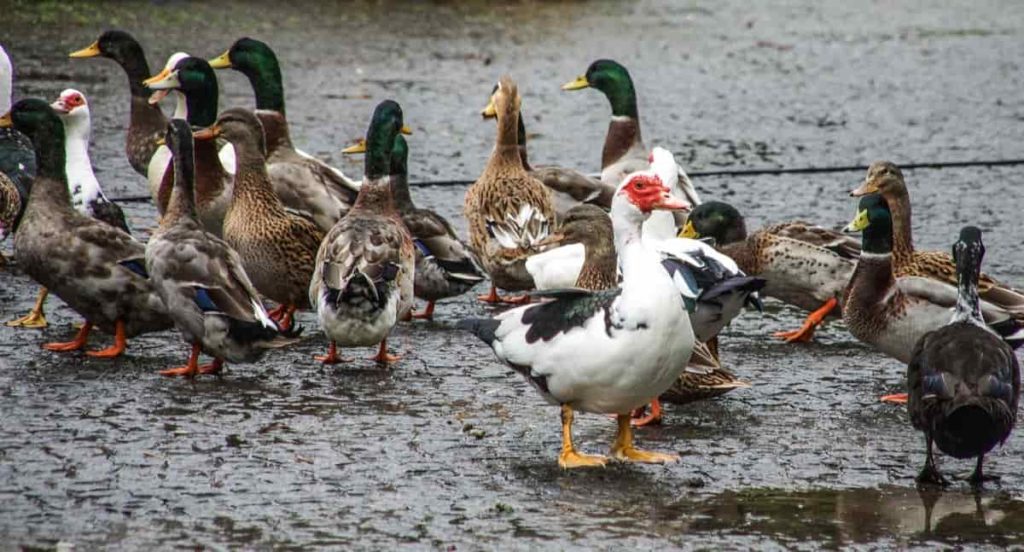
How do you make a duck fence?
If you are having ducklings and have a garden, you will need a fence. Ducks have voracious appetites, and it may take them a few weeks to explore your garden, but it will only take them an hour or two to destroy a flower bed. Fencing is also important to consider if y worried about predators. A good sturdy fence will help keep out a duck’s worst enemies, and a netting run over the top will keep out birds of prey.
What care does a duck need?
A commercially prepared diet should achieve optimal growth and health performance. Turtles, owls, raccoons, hawks, skunks, cats, and dogs are just a few predators that can harm your flock. So keep your ducks in a predator-proof cage.
Ducks are home on the water, so providing a small pond is ideal. Clean water and nutritious food should be provided daily. Vegetables and fruit trimmings are good sources of nutrients for your duck.
Conclusion
Duck housing is critical to maintaining a successful duck farming business. A good home helps birds live a healthy life. Ducks require less expensive, simpler, and less elaborate housing facilities. Consequently, the accommodation costs for setting up a commercial duck farming business are very low. The above are tips for earning good money from these duck farming practices.
- How to Make Houseplants Bushy: Effective Tips and Ideas
- Innovative Strategies for Boosting Coconut Pollination and Yield
- Pollination Strategies for Maximum Pumpkin Yield
- The Complete Guide to Chicken Fattening: Strategies for Maximum Growth
- Natural Solutions for Tulip Problems: 100% Effective Remedies for Leaf and Bulb-Related Issues
- Revolutionizing Citrus Preservation: Towards a Healthier, Greener Future
- Natural Solutions for Peony Leaf and Flower Problems: 100% Effective Remedies
- Maximizing Profits with Avocado Contract Farming in India: A Comprehensive Guide
- Natural Solutions for Hydrangea Problems: 100% Effective Remedies for Leaf and Flowers
- The Ultimate Guide to Choosing the Perfect Foliage Friend: Bringing Life Indoors
- From Sunlight to Sustainability: 15 Ways to Use Solar Technology in Agriculture
- The Ultimate Guide to Dong Tao Chicken: Exploring from History to Raising
- The Eco-Friendly Makeover: How to Convert Your Unused Swimming Pool into a Fish Pond
- Mastering the Art of Delaware Chicken Farming: Essentials for Healthy Backyard Flocks
- 20 Best Homemade Fertilizers for Money Plant: DIY Recipes and Application Methods
- How to Craft a Comprehensive Free-Range Chicken Farming Business Plan
- Brighten Your Flock: Raising Easter Egger Chickens for Beauty and Bounty
- How to Optimize Your Poultry Egg Farm Business Plan with These Strategies
- Subsidy for Spirulina Cultivation: How Indian Government Schemes Encouraging Spirulina Farmers
- Ultimate Guide to Raising Dominique Chickens: Breeding, Feeding, Egg-Production, and Care
- Mastering the Art of Raising Jersey Giant Chickens: Care, Feeding, and More
- Ultimate Guide to Raising Legbar Chickens: Breeding, Farming Practices, Diet, Egg-Production
- How to Raise Welsummer Chickens: A Comprehensive Guide for Beginners
- How to Protect Indoor Plants in Winter: A Comprehensive Guide
- Ultimate Guide to Grow Bag Gardening: Tips, Tricks, and Planting Ideas for Urban Gardeners
- Guide to Lotus Cultivation: How to Propagate, Plant, Grow, Care, Cost, and Profit
- Agriculture Drone Subsidy Scheme: Government Kisan Subsidy, License, and How to Apply Online
- Ultimate Guide to Raising Araucana Chickens: Breed Profile, Farming Economics, Diet, and Care
- Bringing Hydroponics to Classroom: Importance, Benefits of Learning for School Students
- Ultimate Guide to Raising Polish Chickens: Breed Profile, Farming Economics, Diet, and Care
- Ultimate Guide to Raising Australorp Chickens: Profile, Farming Economics, Egg Production, Diet, and Care
- Silkie Chicken Farming: Raising Practices, Varieties, Egg Production, Diet, and Care
- Sussex Chicken Farming: Raising Practices, Varieties, Egg Production, Diet and Care
- Homemade Feed Formulations for Livestock: Discover Cost-effective Starter to Finisher Feed Recipes
- 20 Best Pig Weight Gain Supplements: Top Swine Weight Gain Formulas
- Ultimate Guide to Elderberry Farming: Propagation, Planting, Yield, Cost, and Profit